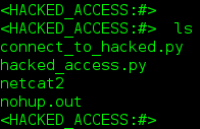 As many organizations move their corporate services to private clouds to cut costs, enable rapid provisioning of resources, enable advanced monitoring, and increase up-time, I believe we will see a continuous uptake of solutions which tie private cloud services and public cloud services together into something called the “hybrid cloud”. The key will be to use a secure connection such as a VPN tunnel to connect the private and public clouds together. This can be a great cost-effective solution as a company, especially a start-up, doesn’t have to carry the burden of building the entire infrastructure from scratch.
As many organizations move their corporate services to private clouds to cut costs, enable rapid provisioning of resources, enable advanced monitoring, and increase up-time, I believe we will see a continuous uptake of solutions which tie private cloud services and public cloud services together into something called the “hybrid cloud”. The key will be to use a secure connection such as a VPN tunnel to connect the private and public clouds together. This can be a great cost-effective solution as a company, especially a start-up, doesn’t have to carry the burden of building the entire infrastructure from scratch.
For example, a company could easily leverage a public cloud service like Amazon Simple Storage Service (Amazon S3) for its data storage needs and build/maintain the active code for its web services in-house. However, one must keep in mind a few important bullet points while considering such a hybrid cloud approach:
– Many corporations will be vary, and, in same cases prohibited, to store critical/sensitive data/services on a public cloud. In this case it will have to be determined what data/services can be stored on the public cloud and if such a strategy would make sense.
– The much controversial, and considered unconstitutional by many, United States Patriot Act is causing many problems for American cloud companies. The Patriot Act gives the federal agents special/secret powers to subpoena data from pubic cloud providers; further, the feds can use gag orders so that the public cloud providers can’t even tell their customers that his/her data has been turned over to the authorities.
As a side effect, many foreign governments/businesses are creating laws/regulations to prevent the storing of data in US-based public clouds and non-US public cloud competitors are cashing-in. If you are a non-US company or even a US company with large foreign subsidiaries, you may also want to look at whether you can live with the far reaching hands of the Patriot Act or whether you are better off choosing a non-US pubic cloud provider. A great article was written last year by Jon Stokes of Wired.com which discusses the issue in more detail: PATRIOT Act Gives Foreigners Good Reason to Avoid US Cloud.
– How reliable is the public cloud provider? Remember, once you go for a hybrid cloud approach, you no longer own the whole infrastructure. If problems occur with the public cloud service you are using, you will have to rely on the third party to resolve the issue until you are back up and running. What is their SLA (service level agreement)?
– How easy will it be to switch public cloud providers if you need to at a later time? Is there significant “lock-in” with the public cloud provider you are choosing?
– Since this infrastructure will be different from your private infrastructure, make sure you understand the total cost associated with the service. Don’t just look at the cost of the service; also look at the support side. You will need to learn this new service offering. How is their support? Will you be able to get assistance when you need it?



 Twitter
Twitter LinkedIn
LinkedIn Youtube
Youtube RSS
RSS